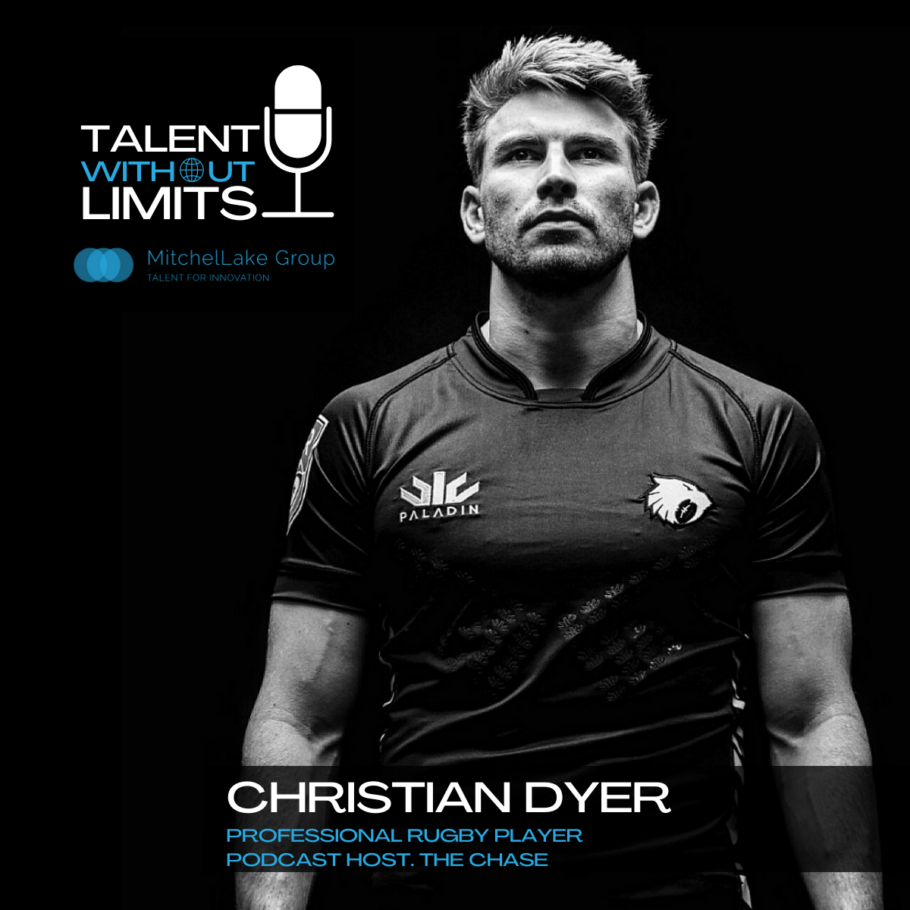Vervoe Founder, Omer Molad, on HR Tech and the Future of Hiring Posted at 9:00, Sun, 16 February 2020 in Profiles
I pulled up a chair with one of the Founders of Vervoe, an AI-powered platform that tests candidates on skills, in order to help remove unconscious biases from the hiring process. Omer Molad is a Founder/ CEO and started Vervoe two years ago with his Co-founder/ CPO David Weinberg.
Working in an industry where you see biases and discrimination play out regularly, I was super excited when I first heard about Vervoe! (and even more excited when MitchelLake started working with them).
So explain to us Omer, what is Vervoe all about?
O: We focus on a dislocation in hiring when companies focus on the wrong signals, or candidates find it difficult to communicate their capability because they are typically judged on superficial things like where they studied, where they’ve worked in the past, their demographics (how old they are, their gender), those sorts of things or in a less specific way, hiring managers or recruiters gravitate towards people who are like them. That’s not a good predictor of on the job performance.
What’s happening is, you’ve got a whole lot of people who are very capable and very passionate and who would do great in a bunch of jobs, and you’ve got a whole bunch of companies looking to fill jobs, and complaining about the “skills shortage” which you read about all day, but then they are not filling those jobs, or they’re filling those jobs with the same sort of people from the same two schools or five companies.
What we’re about is changing that dynamic and helping companies focus on who can do the job, which is a very simple concept. Our inspiration comes from the film industry. If you think about how casting happens in the film industry, you audition for the role. You don’t have coffee with people, you don’t look at what they did before necessarily; the primary interaction is an audition – play the role!
There is no reason why that shouldn’t happen for every job type from engineering, from sales to admin to working in a warehouse. We believe that should be done in context, so it shouldn’t be some sort of generic test or scenario, it should be relevant to the company. So working at BHP Billiton is different to Atlassian, which is different to a Series A startup, which is different to Walmart. In all of those companies, a sales role and admin role is different. You want to put people in the scenarios they are going to face on the job. And then give them an opportunity to thrive and do well. And also opt into that and say “I want a piece of that, I want to do that”.
L: It works both ways right? The candidate gets a feel for what they’ll be doing, as well as the employer getting to see how they’ll perform, which is really useful.
What made you want to play in the HR tech space? I read you experienced being rejected from roles for not having a degree – was your co-founder Dave also at the receiving end of biases in the hiring process?
We’ve (Omer and his Co-Founder Dave) gone through very different personal career journeys, but there’s a lot of similarity in the conclusions and what we’ve taken out of that. I grew up in Tel Aviv, I served in the military, I worked in the tech ecosystem in startups, and then I moved to Melbourne. I didn’t have a degree, no one could pronounce my name. Here you either went to Monash Uni or Melbourne Uni and you studied a certain thing, and that’s what was understood. It felt like everything I did until then was worthless basically.
And I think it turns out I’m not alone in having that experience. Millions of people, whether they’re military veterans, they’ve gone through unorthodox education pathways, people who have developed their skills in different ways, people who have gone to schools and worked and studied at University but have come from under-represented groups also get discounted, dismissed. And so that’s one side of it.
And the other side of it is, David and I both hired big teams and we saw the other side, the top people, the people that you want to reward and promote and retain, they are not the ones you’d pick out of the resume lineup based on where they worked and studied. There’s no way of telling that! So we kind of said why are we continuing to play this game of looking at resumes? There’s got to be a change in how recruitment works.
Does Vervoe also tackle the problem of racial/ gender discrimination in hiring?
We don’t try and tackle it specifically, it’s a byproduct. What we do is we level the playing field by saying – in the traditional hiring process you are looking at people’s background and then deciding who to invite to an interview which is called screening. We eliminate screening, we say give everybody a chance to prove their skills and showcase their talents. Instead of screening at the point of application, they get an opportunity to do a challenge or a series of tasks. Now what’s happening is, as a hiring manager or recruiter, is seeing the work they have done. So if you are determined to hire a bunch of white guys, then we’re not going to stop you – no software will stop you from doing that, and really, good luck to you!
But what we found in many cases, with companies big and small, all over the world, is that when you see someone doing relevant work you tend to focus on all of that and not as much on all the other things. We’ve consistently heard things like “ wow, I never would have considered this person, but they’re awesome!” You end up hiring people you would have screened out. We’re not hiding anything, we’re just making it about the work.
L: That’s great! You are essentially delaying the unconscious biases and allowing employers to see the full picture, skills included, and consider people they may never have previously considered, before making a decision.
On top of that, we often see people drop out at the task stage of an interview process, which is normally the 2nd or 3rd stage, as this is when we see their real commitment to the job they applied for. Often people apply without real consideration of what they’re applying for, so I think Vervoe would also be great in filtering out these people earlier on in the application process!
In what disciplines do you see Vervoe making the most impact?
O: It’s interesting we get asked that a lot. We tend to do a lot in the knowledge worker space, so roles that require thinking, usually in an office. So sales, marketing, finance, design, engineering, you know all the roles that modern companies hire. We do less blue-collar, manufacturing that kind of stuff, but it’s changing. We haven’t played the tape till the end – we’re still early in the adoption curve. Early adopters tend to be more forward-thinking, more technology-enabled, hiring people that are skilled workers.
That’s just one side – the other side is – we just went live with Walmart, the biggest employer in the world, everything’s high volume. For them, it’s more about efficiency. Walmart is getting 10s of 1000s applications in a week and they just can’t process them, and so what do they do, eliminate arbitrarily – and they don’t want to do that. They want to see who’s the best fit using a structured and fair method. And so we’re helping them do that.
However, when you are dealing with really hard to fill roles, and tapping people on the shoulder, really in-demand candidates, passive candidates, it’s harder to get them to take an assessment straight off the bat. Not impossible, but you do it later in the process. You might do it after you’ve had the coffee with them and got them to buy-in. In those cases, you can get value from Vervoe, but less value because we’re not really helping you at the top of the funnel filter through a lot of people. So we tend to be more impactful when there is a decent volume of candidates and companies can use us at the top of the funnel.
Having worked with you and Dave on a search recently, I’ve noticed that you move on candidates super quickly. What gives you the confidence that enables you to make quick decisions when hiring?
One is, we eat our own dog food. We use our own tool and that gives us a strong signal, and we look at the data and believe in our product. The other thing is when you’re a startup, and this applies to more than startups – when candidates are good, they don’t want to be stuffed around, they don’t want to be dragged along for weeks, that applies to everybody. And I think when you are a startup, you know you’re not Google – we don’t take for granted that people will want to work here. Once we decide to hire, we bring a lot of intensity to that role, we focus on it and we try and move-in days, not weeks, and certainly not months.
The signals that are meaningful to us are the following – as I mentioned we use our own tool, we rely heavily on our team, we like getting other people in the team to engage with candidates and give their opinions – that’s really important to us. The third thing is the candidate themselves – what we’ve found is that people who are very passionate about what we’re doing, and very motivated to work with us, we’ve found that there’s a much higher probability that they’ll do well here. It goes a long way – motivation, grit, work ethic – you want people who want to be part of it and are excited.
The top people in our company are the people that in the first second they interacted with us, you could feel their energy, they were like “how can I be part of this”. It does get hard, and it does get challenging, things break – you want people who are in it for the right reasons and they tend to stay the journey.
L: I completely agree, that energy and passion isn’t something you can fake.
Where do you see the benefit of using a search firm like MitchelLake in the future, with HR tech products like Vervoe disrupting the recruitment market?
Yes so we’ve never really thought of agencies as part of the problem, we see them as a completely complementary aspect. Our client tends to be in-house talent teams, and we do have some agency clients, but we target corporate hiring and they utilise a range of methods and certainly the big ones all use agencies too. We aren’t here to reduce agency spend – what we found is that agencies play a different role.
Instead, we are focussed on selection – when there is a volume of candidates and you want to test skills. When I look at agencies, the first thing I see them do is attraction – so sourcing, which we don’t do at all. This is why we, in our own hiring for Vervoe, we use agencies like MitchelLake. In those cases, it’s been 100% worth it because we’ve had to access people who weren’t looking, we don’t know the market, that’s not what we want to spend time on, it’s not what we’re good at. Once we have a shortlist of people we’ll back ourselves to then make a selection, but it is sometimes good to have someone else who has experience in a particular market, especially in a role we’ve never hired for before, to give us an opinion e.g. here are some things to think about with this person, or here are some concerns with that person. So that’s really helpful.
With our customers, sometimes there is a lack of capability in house, and it helps them to use agencies, by in large in our view for the market to work efficiently, you’re going to have inhouse teams, you’re going to have agencies, and you’re going to have technology and they are all going to work together.
The other area where I think there is a massive role for agencies is executive search, and senior roles. There it’s a totally different ball game, it’s not a supply issue, you’re not dealing with 1000 applicants that you’ve got to filter through; it’s a long process, it’s all relationship-based, courtship. It’s not something software is going to help with. You might spend six months hiring a GM for the US office – you need people who have done that, who can tell you where the market is, how to negotiate with these kinds of people. There are so many use cases. We’re all part of a community trying to add value to the hiring process.
The folks that need to be concerned, are the ones that are basically carpet-bombing resumes indiscriminately and not adding any value. They make hiring like selling umbrellas.
L: Do you think that AI and machine learning will ever be able to completely replace humans in the hiring process?
No. I think there are so many generalisations – technology, including advanced technology – there is very little AI (artificial intelligence) by the way, there are a lot of algorithms that are disguised as AI. But I think technology is going to continue playing a role in automating certain processes and helping people understand complex and large amounts of data and make quicker decisions based on that data. But fundamentally, hiring is a human game because hiring is about who are the right people to join my team, my company, and work together. You can bring a lot of rigour, and a lot of science to that, but at the end of the day it’s a human game. It’s about are we going to work together? Are they going to perform well Are they going to work well in isolation? Are they going to perform well in this specific team, in this company, at this time? There is always going to be human input into that.
I also think people don’t want to be treated like chattel, they want to be treated like humans. They want to be welcomed, they want to feel like they’re a part of something. And so just like technology has entered a lot of spaces; like the way we listen to music, the way we buy houses, there are humans all over that. Who is building lists in Spotify? Who is helping you buy houses? You look at banking where a lot of technology is coming in, but all the service is human, all the high touch stuff is personalised. And actually, the best technology experiences are highly personalised. I think there’s going to be some extreme cases, but I think we’ll get the balance in the end.
In 2018, the recruitment industry had a record year in terms of revenue, but everyone is panicking about agencies. The narrative we see is not about replacing humans, the narrative we see is about giving time back to recruiters so they can spend more time on humans, on the right humans in the right way, and use technology to get there faster. To spend more time on the most skilled candidates, marketing to candidates, onboarding – anything but sifting through mountains of resumes which no one wants to do all day long.
L: Now that’s my kind of software!
For more info about Vervoe and how it works click here.



